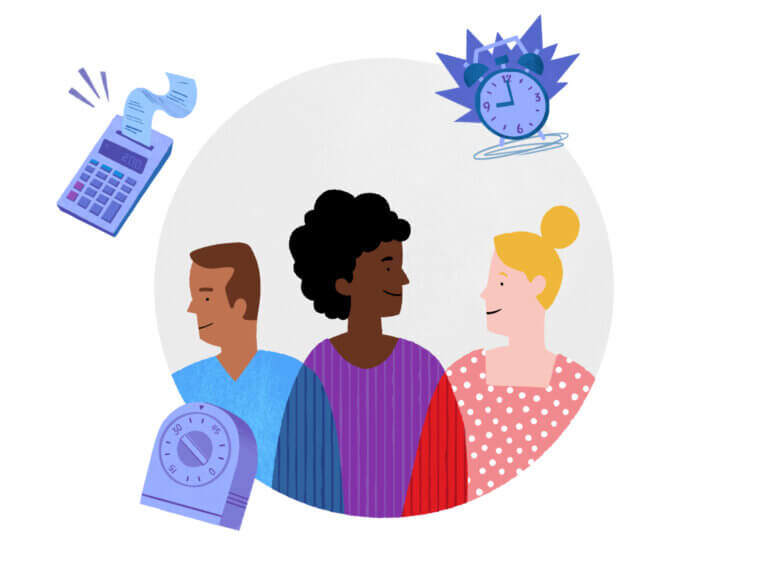
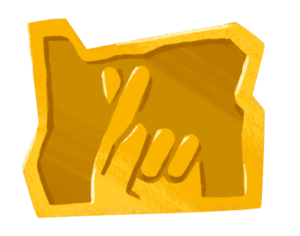 The Oregon Lottery ensures and communicates progress in implementing the Responsible Gaming Code of Practice. We report on annual measures and new initiatives each year using a combination of internal monitoring and independent assessments. The Data Impacts Report is designed to report on annual program measures that look at year-over-year trends when possible, while the key accomplishments and new initiatives sections document new or non-repeatable activities specific to the given year.
The Oregon Lottery ensures and communicates progress in implementing the Responsible Gaming Code of Practice. We report on annual measures and new initiatives each year using a combination of internal monitoring and independent assessments. The Data Impacts Report is designed to report on annual program measures that look at year-over-year trends when possible, while the key accomplishments and new initiatives sections document new or non-repeatable activities specific to the given year.
Our Goals and Code of Practice
Lottery’s overarching program goal is to leverage and support responsible and problem gambling community relationships and to advance the promotion of safe play (RG) strategies and resource utilization.
The Oregon Lottery devotes funding and resources where they will have the most positive impact on the promotion of safer gambling practices (RG) and creating awareness of resources and how to access them for people experiencing issues with gambling (PG). We focus on:
our goals
- Providing information and tools to help players recognize that gambling is an activity that carries risk and to help them develop and utilize safer play strategies that enable them to enjoy Lottery games as entertainment.
- Expanding outreach and resources to reach and engage more players at more points in their help-seeking journey, practicing inclusion, and reducing stigma.
- Creating awareness of resources and counseling services for those impacted by their own or someone else’s gambling. We aim to ensure that people know how to access help, and that they understand it’s free, confidential, and that it works.
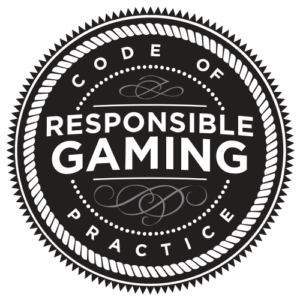 Code of Practice
Code of Practice
The Responsible Gaming Code of Practice commits the Lottery to implement programs focused on research, as well as employee, stakeholder, and retailer engagement. It also addresses player education, retail & online gaming, treatment & referral resources, and advertising & promotion.
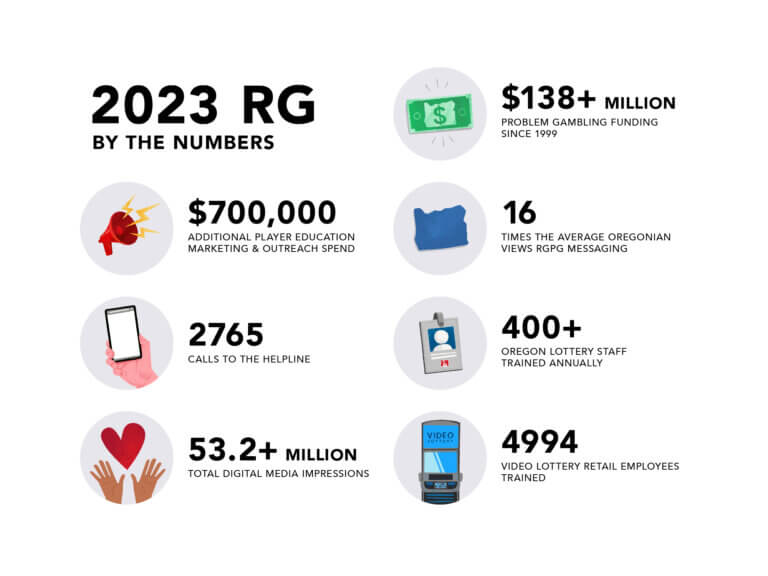
Annual Program Metrics
As part of Lottery’s enterprise strategic plan, the Responsible Gaming Program establishes annual key performance metrics that align with agency goals and our commitments in the Code of Practice. These metrics help us determine the effectiveness of our efforts, identify trends, and foster continuous improvement. Key metrics include:
- Brand Promise: Lottery conducts annual research to determine how Oregonians feel about Lottery’s commitment to delivering on our brand promise of promoting safer play strategies and resource utilization. We also measure awareness of available tools and resources.
- Marketing & Advertising: Lottery implements “always-on” marketing programing to ensure a constant drumbeat of relevant RG/PG messaging and outreach. Annual marketing metrics include both both outputs and outcomes. Output metrics include things like site/app visits generated by advertising. Outcome metrics look at engagements like tool utilization or connecting customers with help.
- Oregon Lottery Employee & Retailer Staff Training: Annually Lottery conducts required retailer and employee training. Like other metrics, we look at both outputs – how many were trained, and outcomes – what did they learn.
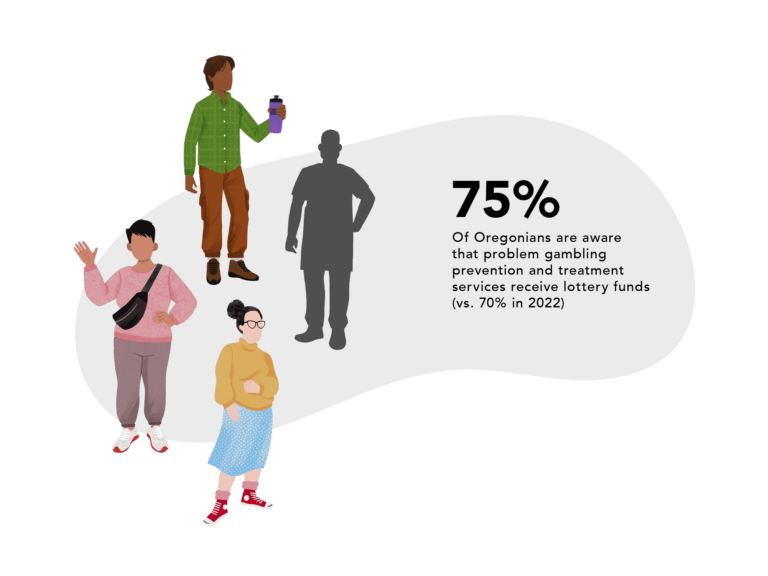
Awareness of Lottery Funding
Oregonians’ awareness of Lottery dollars funding Problem Gambling services is up this year. About 3-in-4 remain positive about Lottery’s support of these services.
Source #1
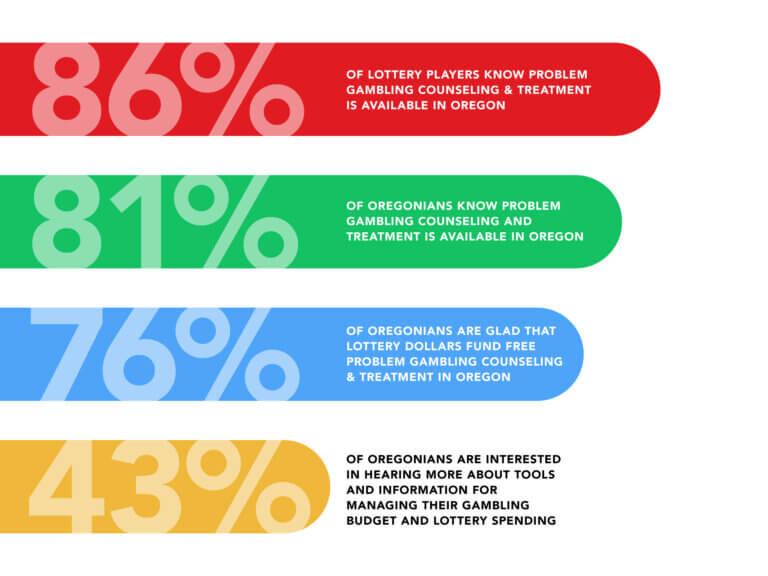
Annual Metrics: Brand Promise
Awareness and Interest in Problem Gambling Treatment: Most Oregonians and more importantly, most Lottery players, are aware of counseling (treatment) resources. These numbers have remained stable as averaged over the past 5 years.
Source #1
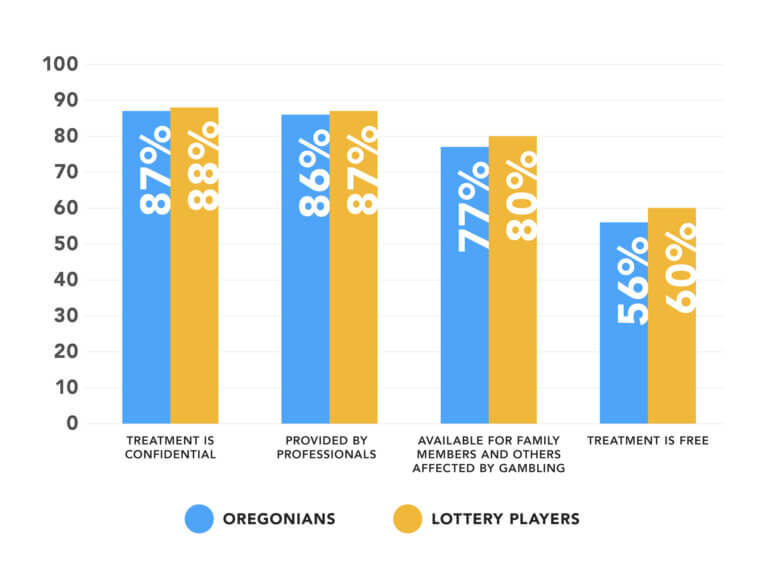
Awareness of Treatment Features
This metric is designed to determine if both Lottery and non-Lottery players are aware of the counseling (treatment) features that are promoted in marketing outreach. These features include Free, Professional, Confidential and availability for anyone affected by gambling. While the numbers are down slightly from 2022, they remain high overall. We have made substantive progress over time on the “treatment is free” metric and will continue to focus efforts here.
Source #1
Annual Metrics: Marketing & Advertising

Annually, Lottery deploys a strategic “always on” advertising schedule with the goal of connecting people to information, tools, and help. Robust content is available on the Oregon Problem Gambling Resource website, and we utilize targeted digital, keyword, print, social and other media to drive Oregonians to the site. OPGR.org offers many options for connecting visitors to help, including phone, chat, and text.
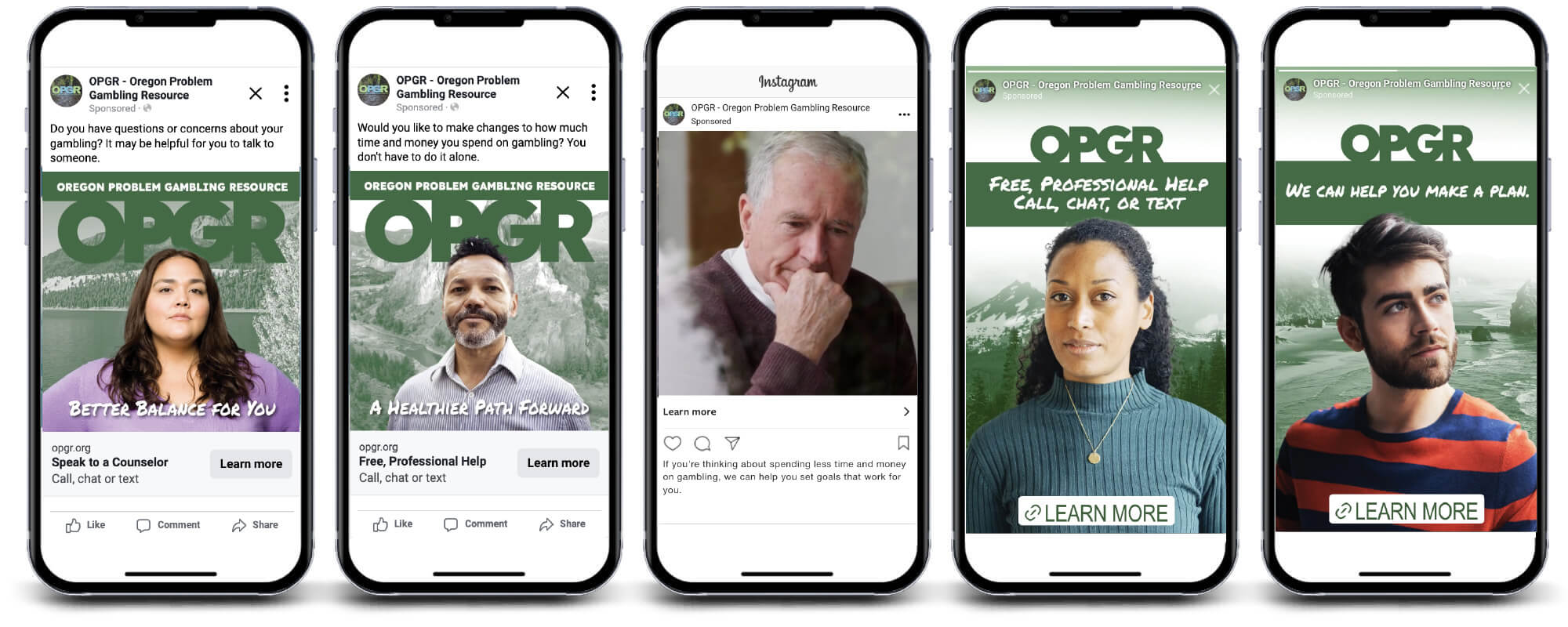
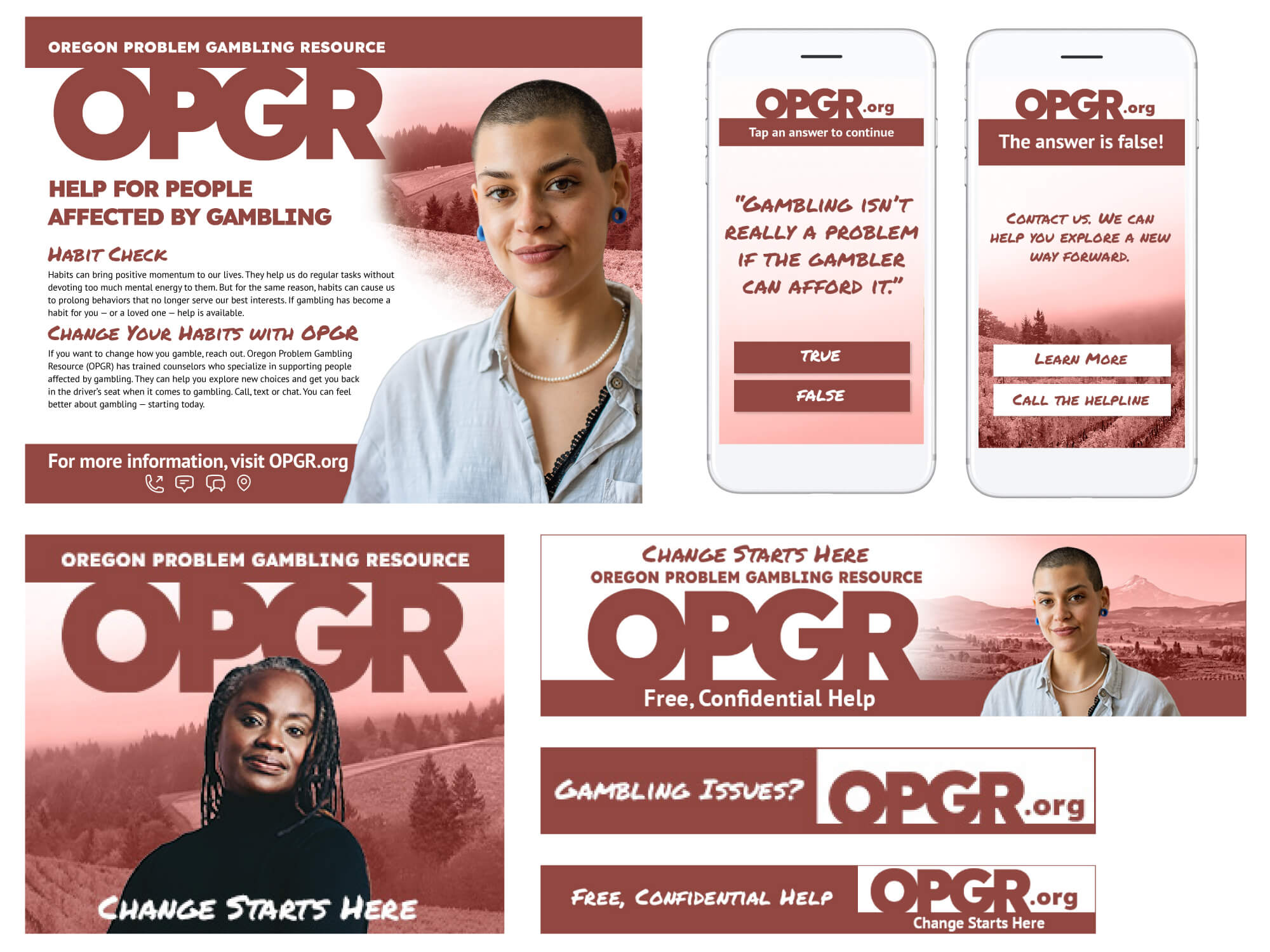
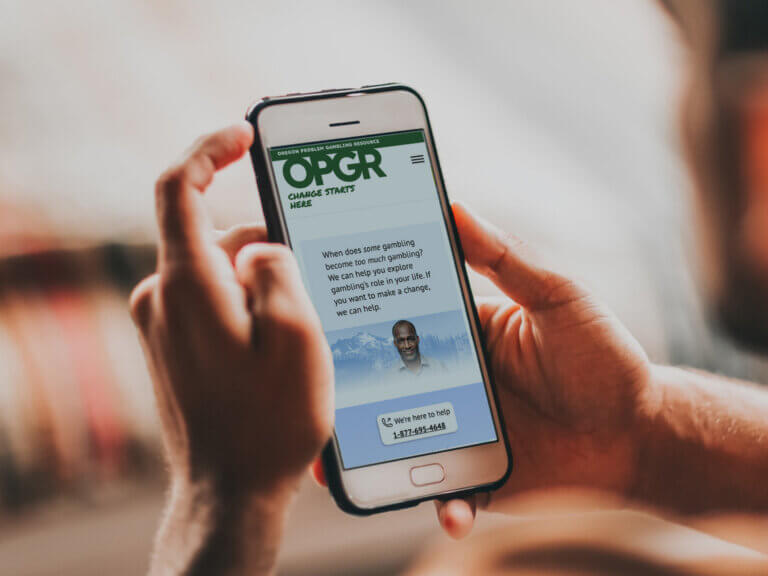
OPGR site visits
285,00
Total site sessions on OPGR.org in 2023
In 2023, OPGR.org had 285,000 site sessions. OPGR advertising developed by Lottery is responsible for over 95% of all site sessions.
Source #2
engagement and media conversion
The goal of advertising and marketing outreach is engagement. It is not enough to get people to visit the site (site sessions); we need them to engage and take an action (conversion). In 2023, we refined our messaging and media targeting, becoming even more efficient with budget and more effective in conversions.
Despite seeing a decline in site sessions in FY24, conversion percentage increased by over 41%.
| 2022 | 2023 | |
|---|---|---|
| Site Sessions | 326,911 | 285,000 |
| Conversions | 5,855 | 6,902 |
| Conversion Ratio | 1.79% | 2.42% |
Source #2, #5
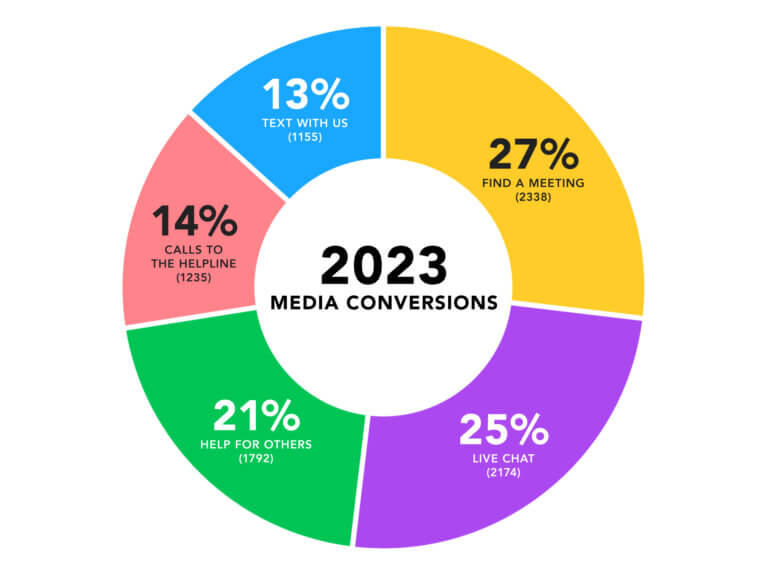
2023 Conversion Actions
In CY23 we promoted a variety of conversion actions. “Find a Meeting” and “Live Chat” were the top conversions with “Live Chat” replacing “Call the Helpline” as a top action.
Source #5
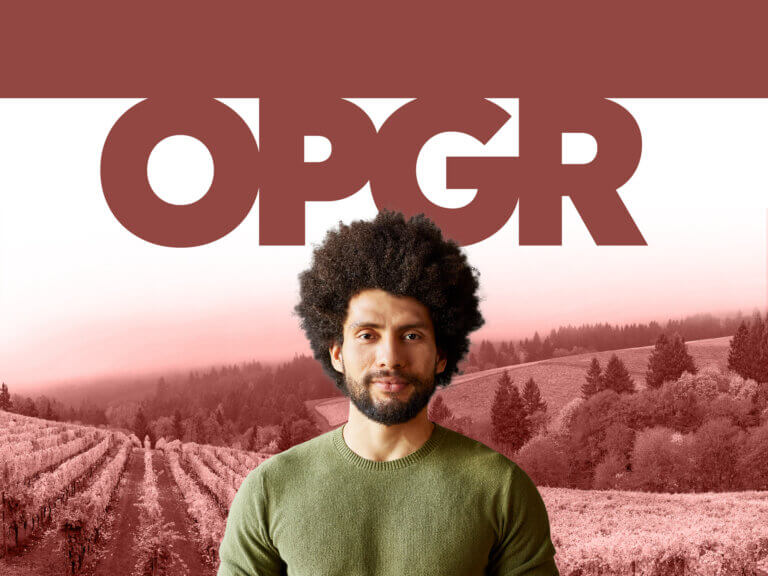
Connecting to a Professional
When engaging with the problem gambling helpline, we promote the phone number, live chat, and text as options for people to connect directly with trained counselors on the OPGR website. Additionally, people may choose to engage after seeing helpline information on various printed marketing materials.
Calls, Chats & Texts in 2023
2,765
489
52
148
Annual Metrics: Training

The Oregon Lottery provides annual responsible gaming training to all Lottery Retailer staff and to all Oregon Lottery employees. In addition to the training, pre- and post-survey surveys are included these training modules to gauge the efficacy of this training and to foster continuous improvement.
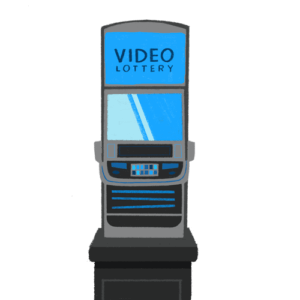 Video Lottery Retailer Training
Video Lottery Retailer Training
This required training module provides retailers with the tools they need to communicate effectively when facing gambling related situations during interactions with customers or the public. Content includes sharing information on how the games work, dispelling common myths about gambling, and promoting responsible gaming as part of an excellent customer service experience.
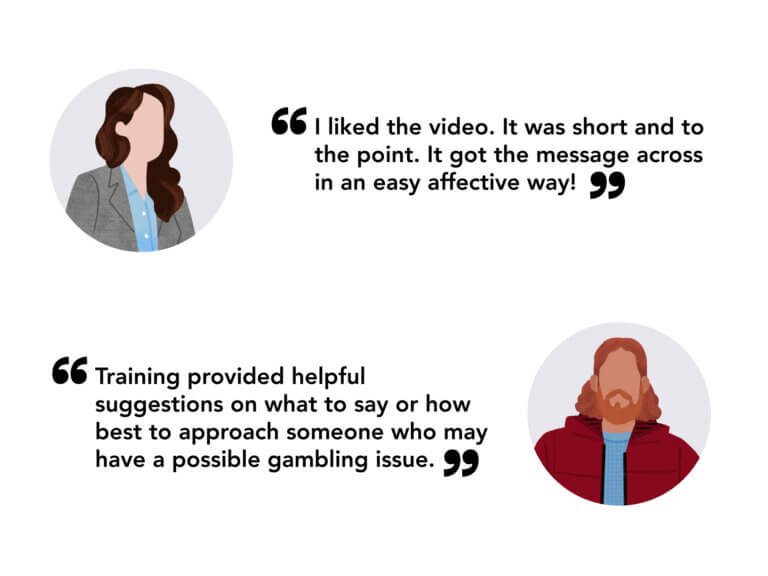
In 2023
- 4994 Video Lottery retailer staff trained
- 2.4 average staff trained per retailer
The majority of Video Lottery retailers strongly agree that promoting responsible gaming is a shared responsibility between Lottery retailers and Oregon Lottery.
Source #6, #8
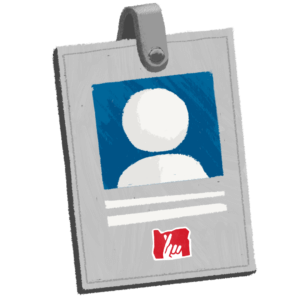 Lottery All-staff Training
Lottery All-staff Training
This mandatory training provides employees with the necessary tools they need to understand Lottery’s commitment to RG and the role they play in the promotion of responsible gaming. This training module equips staff with tools to address situations they may face when interacting with players or the general public.
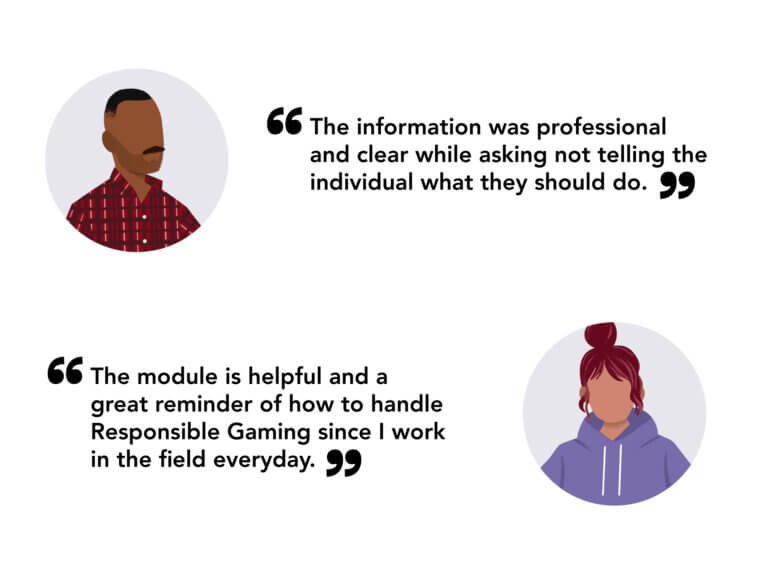
In 2023
- 400+ employees trained annually
- Over 50% all Lottery employees strongly agree that promoting responsible gaming is good for business
The majority of staff were able to connect the training to their role as a Lottery brand ambassador.
Source #7
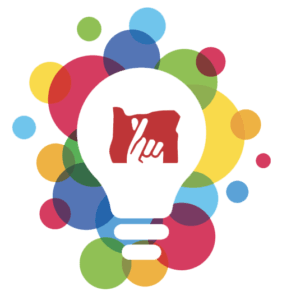
Key Accomplishments & New Initiatives
In 2023 we began work to validate our hypothesis that there’s a big opportunity to effectively help previously unreached audiences such as: those who are just beginning to think about changing their gambling; people who have historically ignored RG outreach because it didn’t resonate with their situation; those who have seen PG outreach messaging but felt stigmatized or weren’t interested in quitting altogether; and people who previously tried to find information about changing their habits and were only served information about addiction.
We talked to these types of players to better understand their beliefs, needs, and challenges. We collaborated with treatment and prevention providers to learn how services and programs could support this group. We conducted extensive research and began testing language, messaging, online tools and advertising. White it’s too early to report results, we have included an early look at some key accomplishments for this important work.
inclusive & non-stigmatizing messaging guidelines
In 2023 we focused on refining marketing outreach to advance the promotion of safer play and increase help resource utilization. The first step to this iterative improvement was to ensure we approach these topics inclusively, to reduce stigma and resistance to treatment messaging, and to combat stigma related to seeking out and using RG tools and information. The Inclusive Messaging & Non-Stigmatizing Messaging Guidelines were developed with an industry expert to help us shape marketing strategies, assets, and messaging that support the above mentioned goals.
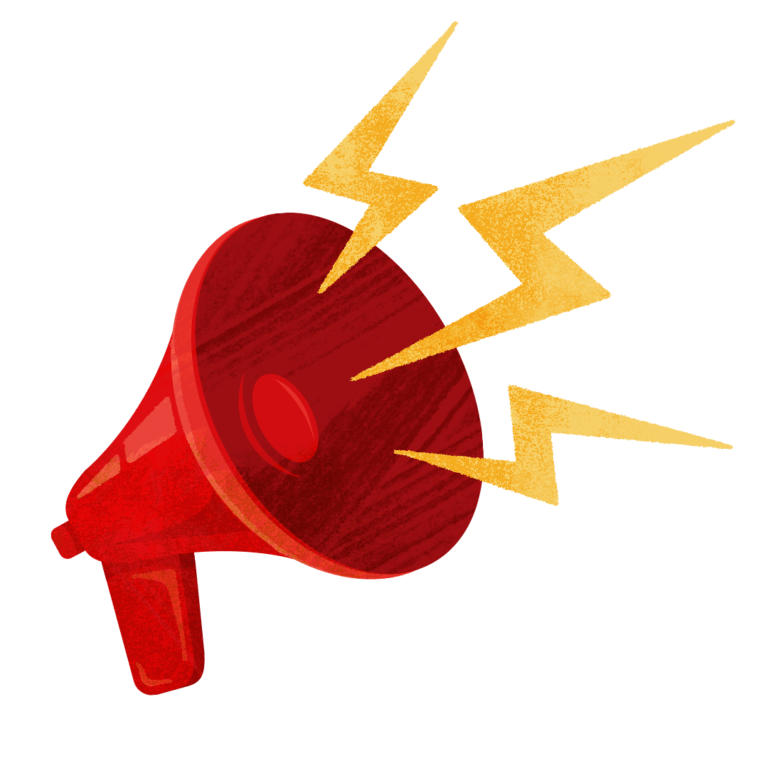
Knowing gambling involves risk
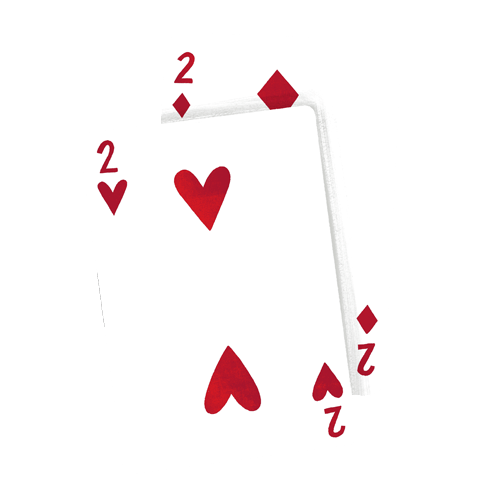
Knowing how to use harm reduction play strategies
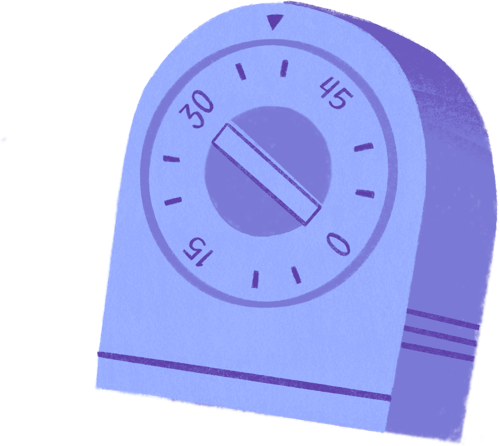
Setting limits that work for you and that help keep activities enjoyable
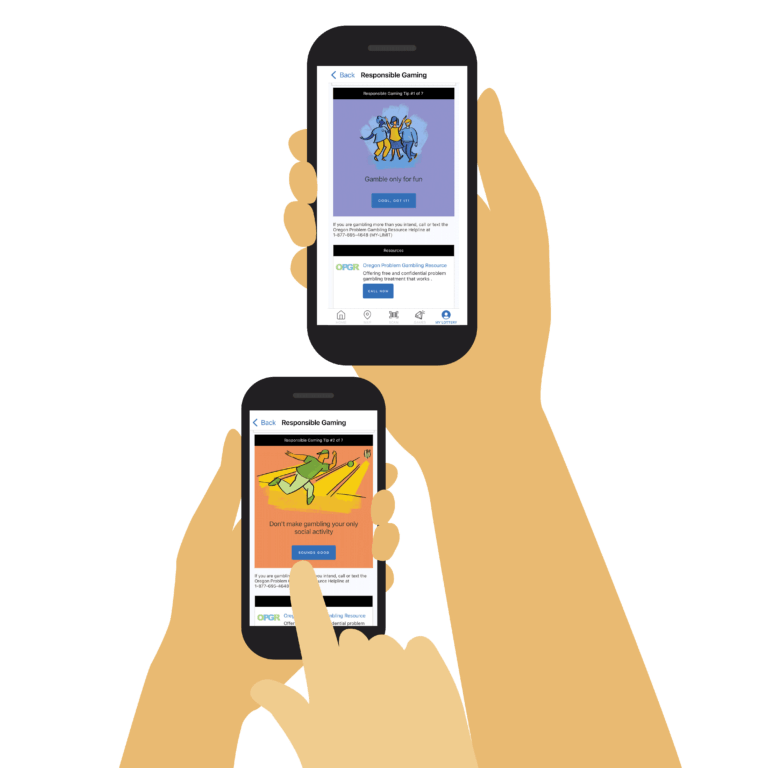
Keeping gambling in balance with other important life activities
Maintaining important relationships and reducing the negative impacts of your gambling on others
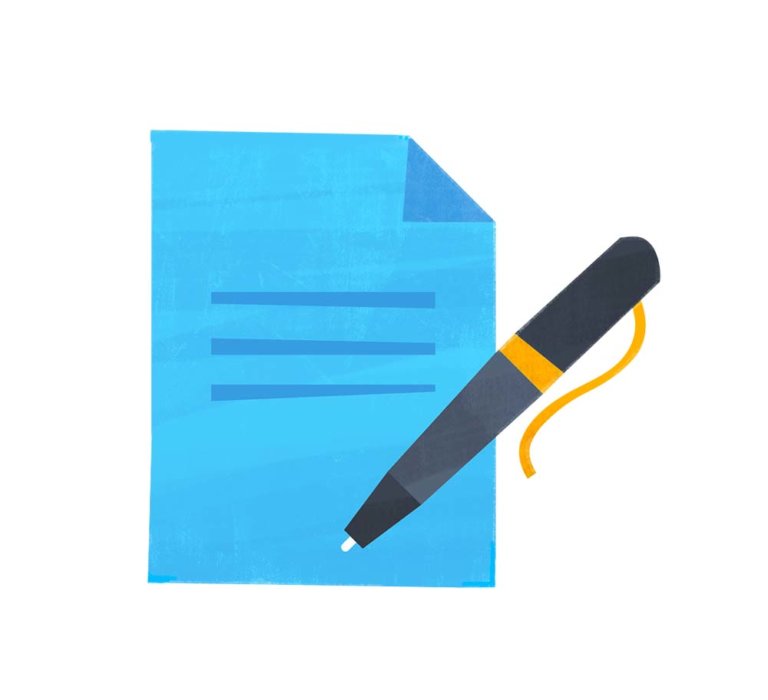
Recognizing the signs that change may be needed, and knowing where and how to access it early
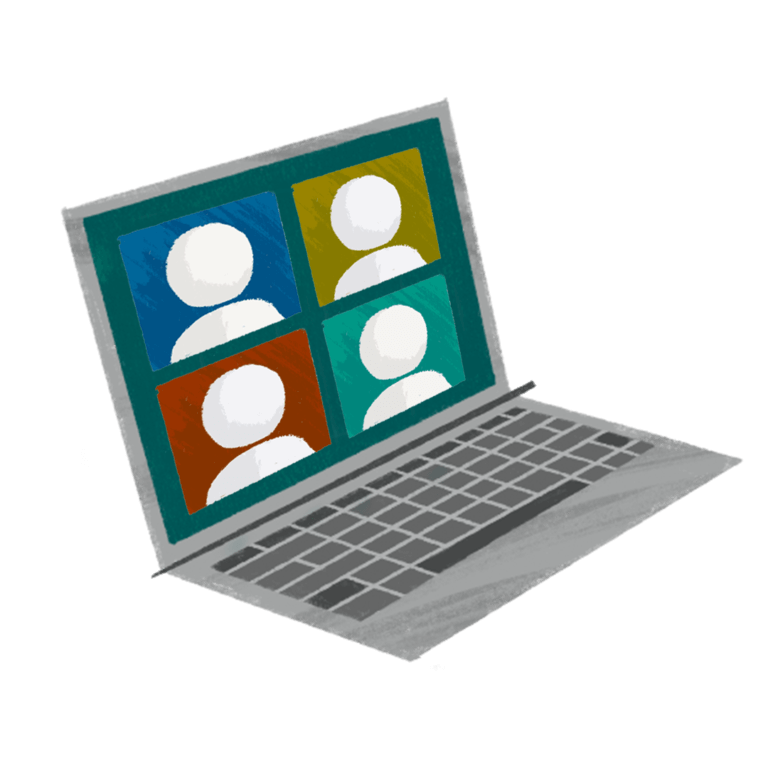
Knowing professional services are available for every Oregonian who is concerned about their own or another’s gambling
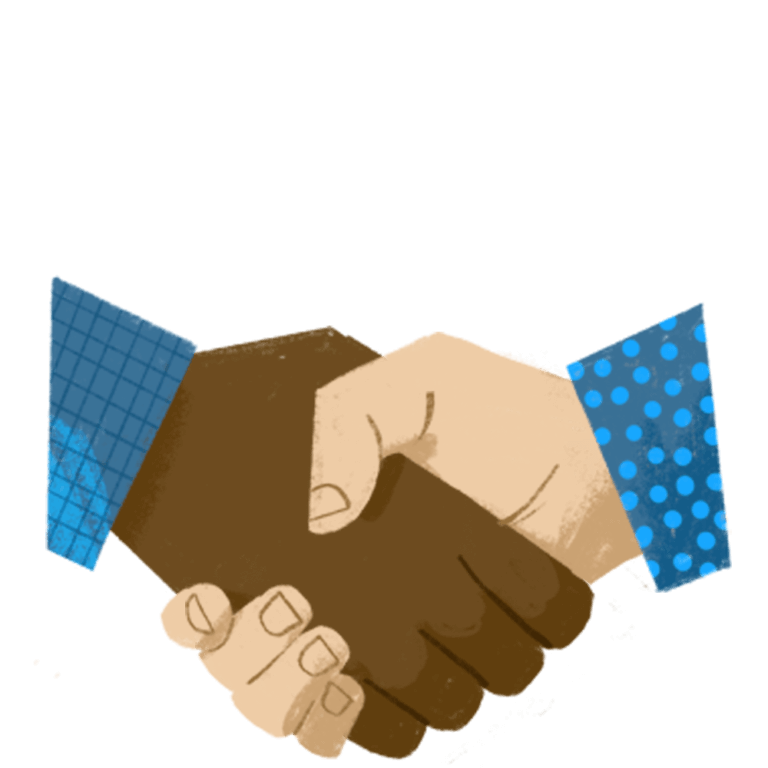
Knowing how to access services and understand what happens when you seek them out
multi-phased research
In 2023 we began a multi-phased research initiative to explore how we engage and support people who are considering making a change to how they gamble. Part 1 was completed late in the year and included an extensive literature review as well as interviews with researchers and treatment and prevention professionals. Part 2 began in December 2023 with a project to capture digital online diaries with players followed by in-depth one-on-one interviews. Results will be published and shared mid-2024.
website redesign & Addition of moderation content
In 2023 the OPGR.org website was updated to reflect new language guidelines and to include more robust content for site visitors seeking gambling moderation and habit change resources. Dedicated moderation-focused content was added with a dedicated content page at opgr.org/cut-back/.
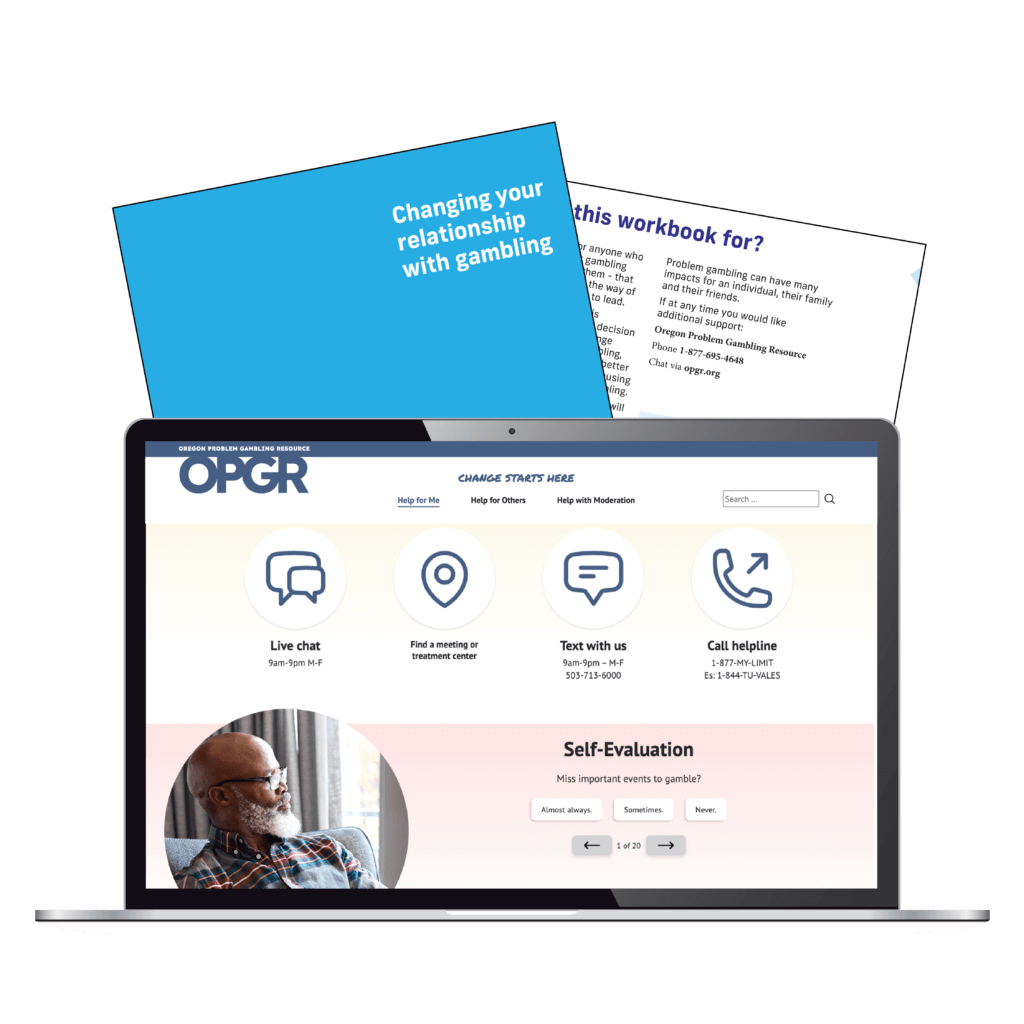
Advertising Testing
To leverage the “resolution season”, new advertising messaging focused on “change and choice” was tested in December 2023. The ads directed viewers to the new moderation content on OPGR.org. Early performance shows these messages outperforming traditional quitting and counseling-focused messages.
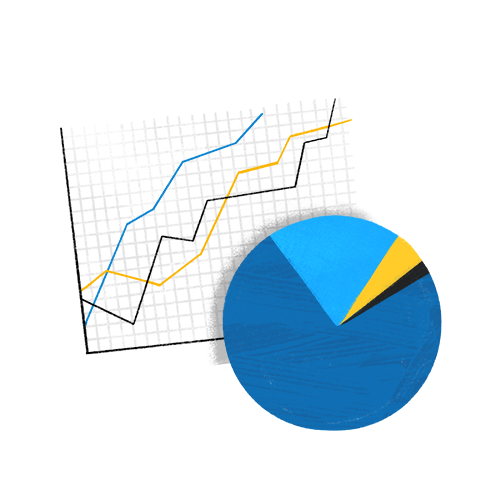
Industry Involvement
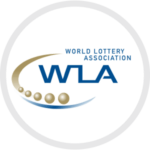 The Oregon Lottery is an associate member of the World Lottery Association (WLA) and currently holds the highest level of certification at level 4. WLA’s values are based on a commitment to the highest standards of corporate responsibility and are based on WLA Responsible Gaming Principles and Framework.
The Oregon Lottery is an associate member of the World Lottery Association (WLA) and currently holds the highest level of certification at level 4. WLA’s values are based on a commitment to the highest standards of corporate responsibility and are based on WLA Responsible Gaming Principles and Framework.
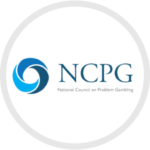 The Oregon Lottery is currently a Gold Member of the National Council on Problem Gambling and actively holds positions on the board of directors and various committees. Membership provides a variety of experiences across multiple industries to strengthen NCPG’s leadership as the organization continues to grow and evolve.
The Oregon Lottery is currently a Gold Member of the National Council on Problem Gambling and actively holds positions on the board of directors and various committees. Membership provides a variety of experiences across multiple industries to strengthen NCPG’s leadership as the organization continues to grow and evolve.
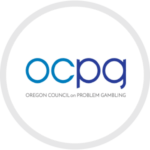 The Oregon Council on Problem Gambling (OCPG) is the state affiliate to the National Council on Problem Gambling. The OCPG’s purpose is to promote the health of Oregonians by supporting efforts to minimize gambling related harm. The Oregon Lottery holds a position on the board of directors along with other interested parties and stakeholders from the gaming industry, treatment and prevention field, the recovery community and state and county administrators.
The Oregon Council on Problem Gambling (OCPG) is the state affiliate to the National Council on Problem Gambling. The OCPG’s purpose is to promote the health of Oregonians by supporting efforts to minimize gambling related harm. The Oregon Lottery holds a position on the board of directors along with other interested parties and stakeholders from the gaming industry, treatment and prevention field, the recovery community and state and county administrators.
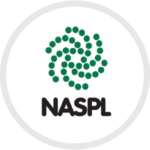 The Oregon Lottery is an Associate Member of the North American Association of State and Provincial Lotteries (NASPL). Currently, Oregon holds “Sustaining” level certification through NASPL and NCPG which is the highest level available. In addition, the Oregon Lottery director serves as the chair of the NASPL Responsible Gambling sub-committee. NASPL’s mission is to assemble and disseminate information and benefits of state and provincial lottery organizations through education and communications and, where appropriate, publicly advocate the positions of NASPL on matters of general policy.
The Oregon Lottery is an Associate Member of the North American Association of State and Provincial Lotteries (NASPL). Currently, Oregon holds “Sustaining” level certification through NASPL and NCPG which is the highest level available. In addition, the Oregon Lottery director serves as the chair of the NASPL Responsible Gambling sub-committee. NASPL’s mission is to assemble and disseminate information and benefits of state and provincial lottery organizations through education and communications and, where appropriate, publicly advocate the positions of NASPL on matters of general policy.
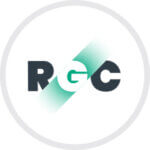 The Oregon Lottery actively holds a board member seat on the Responsible Gambling Council (RGC). RGC exists to ensure that gambling safeguards are in place, to promote the wellbeing of people and communities They have been a leader in the prevention of problem gambling in Canada and globally for 40+ years.
The Oregon Lottery actively holds a board member seat on the Responsible Gambling Council (RGC). RGC exists to ensure that gambling safeguards are in place, to promote the wellbeing of people and communities They have been a leader in the prevention of problem gambling in Canada and globally for 40+ years.
CITATION:
- Oregon Lottery: Brand Promise Study Summary of Findings Final Report: 2023. N=800
- Google Analytics 2023.
- Self-Care Training Executive Summary 2023.
- Problem Gambling Program Yearly Report 2023.
- Pollinate: YOY Post Report 2023.
- Power BI Retailer Training Database 2023.
- Responsible Gaming & You Lottery Staff Training Survey Data 2023.
- Responsible Gaming & You Video Lottery Employee Training Survey Data 2023.

